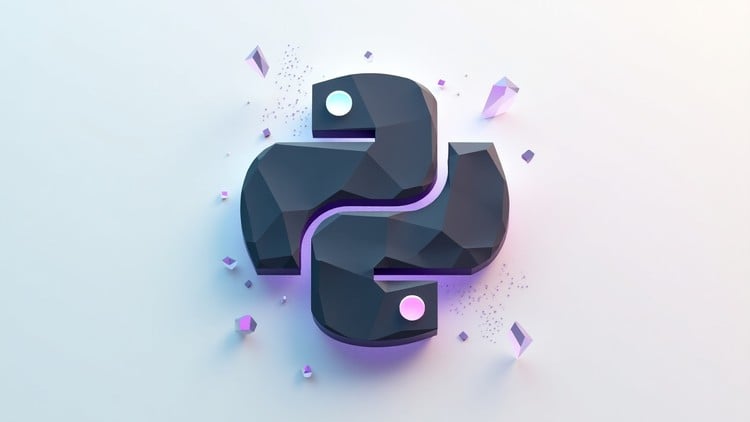
Master Exam Success with 6 Full-Length Mock Exams Covering Python Automation Fundamentals and Concepts!
👥 1,297 students
🔄 September 2025 update
Add-On Information:
Note➛ Make sure your 𝐔𝐝𝐞𝐦𝐲 cart has only this course you're going to enroll it now, Remove all other courses from the 𝐔𝐝𝐞𝐦𝐲 cart before Enrolling!
-
Course Overview
- This course prepares you to become a PCEA Certified Entry-Level Automation Specialist with Python, validating your foundational skills in automating tasks.
- Focuses on mastering exam success for the PCEA certification, including a comprehensive understanding of Python automation fundamentals and concepts.
- Features six full-length mock exams meticulously designed to simulate the actual certification test, boosting your confidence and readiness.
- Learn to apply Python for practical automation across various domains, turning repetitive manual tasks into efficient, automated workflows.
- Join a growing community of over 1,297 students, with content kept current through regular updates, including the latest September 2025 update, ensuring industry relevance.
-
Requirements / Prerequisites
- Basic Computer Literacy: Familiarity with operating a computer, managing files, and navigating the internet.
- No Prior Automation Experience: Designed for absolute beginners in automation; foundational concepts are taught from scratch.
- Willingness to Learn Python: Eagerness to grasp basic programming logic and Python syntax is crucial. Prior Python experience is helpful but not required.
- Reliable Internet Connection: Essential for accessing course materials, software downloads, and online mock exams.
- Access to a Personal Computer: A desktop or laptop capable of running a Python development environment.
- Problem-Solving Mindset: An analytical approach and curiosity for optimizing processes are beneficial.
-
Skills Covered / Tools Used
- Python Programming Fundamentals: Master essential Python syntax, data types, control flow, functions, and modules for scripting.
- Core Automation Concepts: Understand principles of task identification, workflow design, and best practices for automation.
- File System Automation: Utilize Python’s
osandshutilmodules to manage files and directories programmatically. - Text Processing & Regular Expressions: Learn to manipulate and extract information from text data using string methods and the
remodule. - System Interaction: Automate command-line operations and process management with Python’s
subprocessmodule. - Error Handling & Debugging: Implement robust
try-exceptblocks and basic debugging techniques for reliable scripts. - Date and Time Automation: Work with Python’s
datetimemodule for scheduling, logging, and time-based operations. - Virtual Environments: Set up and manage isolated Python environments using tools like
venvfor project dependency management. - Version Control Basics: Gain an introductory understanding of Git and GitHub for tracking script changes and collaboration.
- Integrated Development Environments (IDEs): Familiarization with tools like VS Code or PyCharm Community for efficient coding.
-
Benefits / Outcomes
- PCEA Certification: Successfully earn an industry-recognized credential, validating your entry-level Python automation expertise.
- Career Launchpad: Open doors to entry-level automation, IT operations, or junior Python developer roles.
- Practical Automation Proficiency: Develop the immediate ability to automate routine and repetitive manual tasks across various IT domains.
- Enhanced Problem-Solving: Cultivate a logical, analytical approach to identifying inefficiencies and designing automated solutions.
- Build a Project Portfolio: Create a collection of functional Python automation scripts to showcase your skills to potential employers.
- Increased Efficiency & Productivity: Streamline workflows, reduce manual errors, and free up time by implementing smart automation.
- Foundation for Advanced Topics: Establish a strong base for future learning in specialized automation, DevOps, or data science.
- Boosted Technical Confidence: Gain self-assurance in your Python programming and automation abilities, ready to tackle new challenges.
-
PROS
- Highly Targeted Certification Prep: Specifically structured for passing the PCEA exam, backed by extensive mock tests.
- Accessible for Beginners: No prior automation experience required, making it ideal for newcomers to the field.
- Python-Focused & Industry-Relevant: Leverages Python, a versatile and in-demand language for modern automation.
- Hands-On Practical Learning: Emphasizes real-world scripting and practical application over theoretical concepts.
- Strong Community & Current Content: Benefits from a large student base and guaranteed up-to-date material.
- Clear Career Pathway: Provides a direct route to entry-level automation specialist roles with a recognized certification.
-
CONS
- Certification-Specific Scope: While excellent for PCEA, the course might not delve deeply into advanced or niche automation frameworks beyond the exam syllabus.
Learning Tracks: English,Development,Programming Languages
Found It Free? Share It Fast!